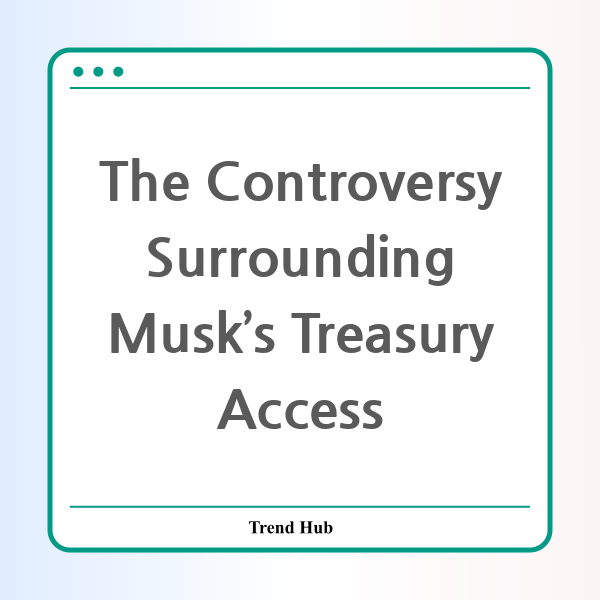* This website participates in the Amazon Affiliate Program and earns from qualifying purchases.

What happens when high-profile business interests collide with governmental processes? Recently, the email exchanges involving Treasury Department officials and associates of Elon Musk unveiled a controversial attempt to influence the flow of foreign aid through the Treasury's payment system. This story underscores the complex relationship between politics, business, and the legal authority governing financial decision-making in the United States.
In the days following Donald Trump’s inauguration, Musk’s top aides at the Treasury Department sought to cut off all payments from the United States Agency for International Development (USAID). This bold request caught the attention of acting Treasury secretary David Lebryk, who expressed skepticism about the legality of such actions. He emphasized that payments certified by an agency could not be halted arbitrarily by the Treasury.
The email exchange opened a floodgate of political tension in Washington, inciting urgent court proceedings and intense discussions among lawmakers. The events revealed a contentious push from political appointees loyal to Musk and a noteworthy clash with seasoned civil servants, who are typically guided by established protocols.
The Bureau of the Fiscal Service, a relatively obscure office responsible for processing over a billion payments annually, came into the spotlight due to this controversy. It is this office that deals with critical distribution processes for tax returns, Social Security benefits, and federal salaries. The implications of meddling with this system extend far beyond mere operational concerns; they touch on the power of Congress regarding the nation’s budget and financial governance.
In a lengthy email, the chief of staff for then-Treasury Secretary Scott Bessent argued for a cessation of USAID payments until the State Department could assure compliance with presidential directives. This push by the new administration suggested a willingness to exploit the Treasury’s infrastructure to align with Trump's political agenda. Such actions could set a dangerous precedent regarding executive power over financial decisions traditionally reserved for legislative oversight.
In the wake of these events, alarm bells rang as Democratic senators demanded answers about the extent to which Musk's associates could control or influence aid funding. Unions and advocacy groups raised concerns about privacy risks associated with Musk's potential access to sensitive data through the Treasury's systems.
Although Treasury officials later clarified that access for Musk's associates was limited to "read-only," the implications of their initial demands cannot be understated. The distinction between the requested access and what was actually granted highlights a significant concern regarding accountability and transparency within governmental operations.
As events unfold, the ramifications of this controversy will likely echo through political discussions and reform movements, especially concerning the interaction between corporate interests and public governance. The tension highlighted by these situation calls for closer scrutiny of the policies and practices that govern access to sensitive financial systems, emphasizing the need for transparency and adherence to legal frameworks in all governmental functions.
In conclusion, as we continue to navigate these complex relationships between business and government, it is vital to remain vigilant regarding the potential risks associated with influential business figures attempting to exert control over public resources. The implications for democracy, the legal authority of various government agencies, and the protection of taxpayer rights warrant ongoing discussion and scrutiny.
* This website participates in the Amazon Affiliate Program and earns from qualifying purchases.